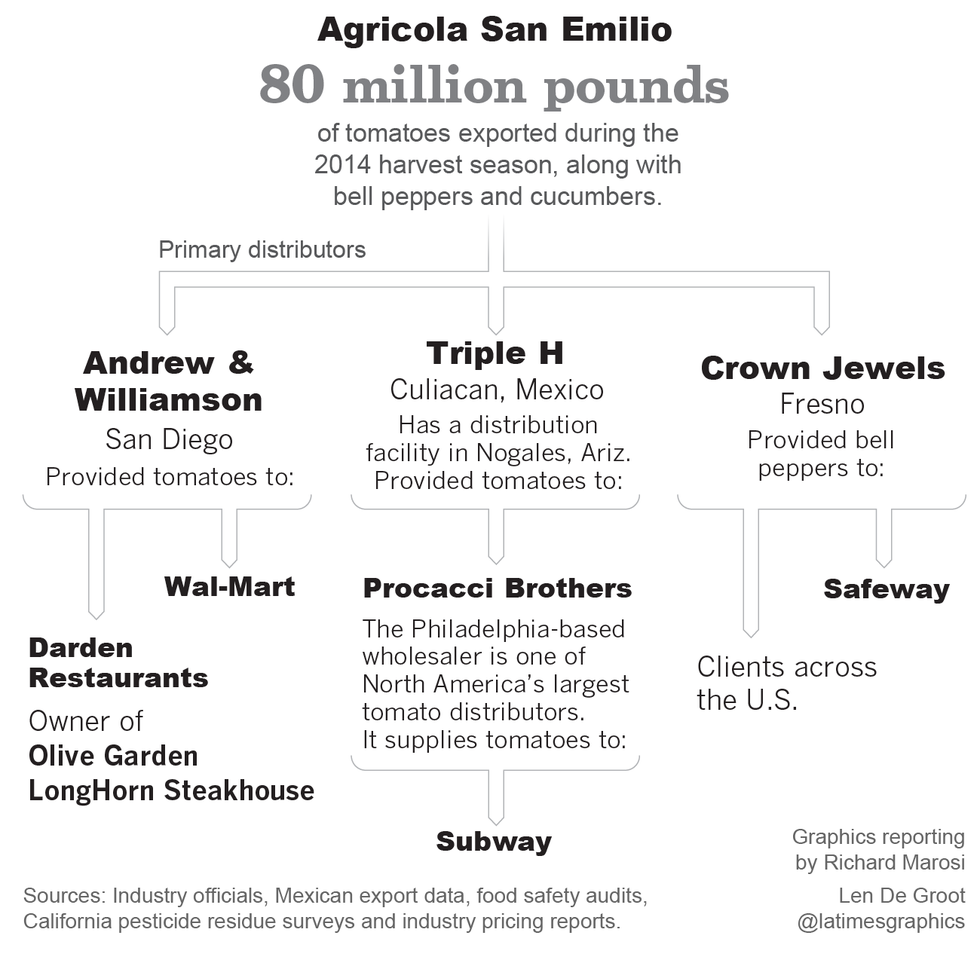What they said:
Suppliers respond
Responses from companies in the supply chain:
Andrew & Williamson
The firm said it tried to ensure that produce it received was picked by workers paid in accordance with Mexican law, but added: “We didn't have full control of the operation.”
Crown Jewels
The company said it was unaware of problems at San Emilio.
Darden Restaurants
“We have not done business with San Emilio since the last season ended.”
Procacci Bros.
“If the allegations are true, we are disheartened to learn that product that we purchased may have originated from a farm where part of the workforce was subjected to substandard living conditions and an illegal wage structure. We will continue to look into this situation.”
Safeway
“We take any and all claims regarding worker conditions seriously and are looking into each of the points you raise.”
Subway
“It is our policy to not purchase produce from any farm that uses forced labor practices.... We will use this opportunity to reinforce our Code of Conduct with our suppliers.”
Updated Dec. 27, 2014: After this story was published, Subway issued a new statement saying it had not received tomatoes from Agricola San Emilio in 2014. The company did not respond when asked if it had received tomatoes from San Emilio before 2014.
Triple H
The company said it was unaware of labor abuses at Agricola San Emilio and has stopped doing business with the farm.
Wal-Mart
The retailer said it does not currently receive produce from San Emilio.
The produce pipeline: A case study
Agricola San Emilio is a Mexican agribusiness where workers endured abusive conditions. Using public records, private market data and interviews, The Times traced produce from San Emilio to the United States.
